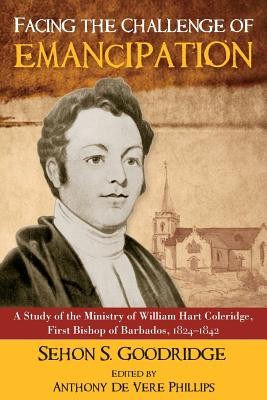
- We will send in 10–14 business days.
- Publisher: Canoe Press (IL)
- Year: 2014
- Pages: 158
- ISBN-10: 9766530149
- ISBN-13: 9789766530143
- Format: 15.2 x 22.6 x 0.8 cm, minkšti viršeliai
- Language: English
- SAVE -10% with code: EXTRA
Facing the Challenge of Emancipation (e-book) (used book) | bookbook.eu
Reviews
Description
The 1820s and 1830s were a crucial period in the historical experience of the British Caribbean colonies, because it marked the adoption of a policy of slaveemancipation by the British government. Central to the implementation of that policy was the formal embrace of the enslaved Africans by the state church, the Anglican Church. This was made clear in the official pronouncement that religious instruction is the surest foundation for the amelioration of the state of the slave population.
Facing the Challenge of Emancipation shows, in clear and concise fashion, how William Hart Coleridge, the first Anglican bishop of Barbados and the Leewards, executed new mandate of the Anglican Church. Between 1824 and 1842, this inexperienced theologian displayed immense energy and skill in establishing his control over the diocese, in neutralizing the entrenched opposition to reform, and in raising financial support for a phenomenal building programme.
The result was that the Anglican Church for the first time became fully accessible to the enslaved and to their successors, the so-called apprentices and the newly freed persons. Particularly important was the provision of the rudiments of education, both religious and secular, to an increasing number of converts and their children through the agency of newly constructed chapels of ease and chapel schools. Goodridge demonstrates that, by the time that Bishop Coleridge retired to England, a flood of beneficial light had been cast on a dark period and that the Anglican Church in Barbados could be said to possess a popular dimension.
EXTRA 10 % discount with code: EXTRA
The promotion ends in 21d.09:35:18
The discount code is valid when purchasing from 10 €. Discounts do not stack.
- Publisher: Canoe Press (IL)
- Year: 2014
- Pages: 158
- ISBN-10: 9766530149
- ISBN-13: 9789766530143
- Format: 15.2 x 22.6 x 0.8 cm, minkšti viršeliai
- Language: English English
The 1820s and 1830s were a crucial period in the historical experience of the British Caribbean colonies, because it marked the adoption of a policy of slaveemancipation by the British government. Central to the implementation of that policy was the formal embrace of the enslaved Africans by the state church, the Anglican Church. This was made clear in the official pronouncement that religious instruction is the surest foundation for the amelioration of the state of the slave population.
Facing the Challenge of Emancipation shows, in clear and concise fashion, how William Hart Coleridge, the first Anglican bishop of Barbados and the Leewards, executed new mandate of the Anglican Church. Between 1824 and 1842, this inexperienced theologian displayed immense energy and skill in establishing his control over the diocese, in neutralizing the entrenched opposition to reform, and in raising financial support for a phenomenal building programme.
The result was that the Anglican Church for the first time became fully accessible to the enslaved and to their successors, the so-called apprentices and the newly freed persons. Particularly important was the provision of the rudiments of education, both religious and secular, to an increasing number of converts and their children through the agency of newly constructed chapels of ease and chapel schools. Goodridge demonstrates that, by the time that Bishop Coleridge retired to England, a flood of beneficial light had been cast on a dark period and that the Anglican Church in Barbados could be said to possess a popular dimension.


Reviews